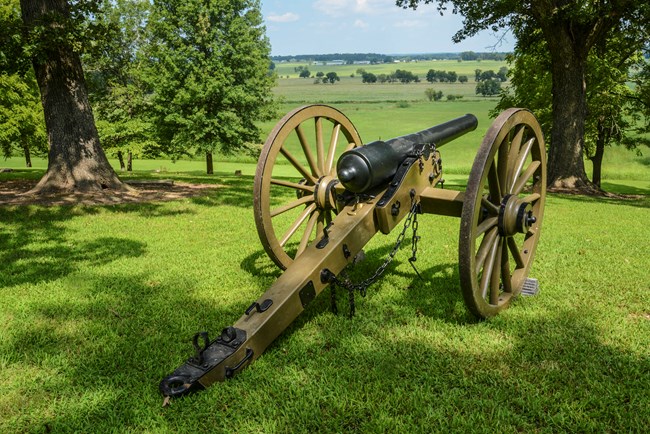Last updated: April 7, 2025
Article
A Deadly Battle on the Big Prairie

Image courtesy of the Arkansas Department of State Parks.
Recipient: Arkansas Department of Parks, Heritage, and Tourism, Division of State Parks
Amount: $ 440,000
Acres: 36.35
Often eclipsed by the campaigns fought east of the Mississippi River, the Civil War battles between Union and Confederate armies in the far western states were smaller in scale, but just as deadly. On December 7, 1862, roughly evenly matched forces engaged in a seesaw battle over the open fields of Prairie Grove, Arkansas, with neither side gaining a decisive advantage. A tactical draw, both sides sustained nearly 14% casualties in a single day. For comparison, the Battle of Fredericksburg that occurred six days later in Virginia, involved more than four times as many troops and had a casualty rate of approximately 9%. A strategic victory for the Union, Prairie Grove is also notable for the diversity of the Union Army units that took part in the battle. These units included Union loyalists from Arkansas, Black infantrymen from Kansas, and two Indian Home Guard regiments from the “Five Civilized Tribes” of the Indian Territory (modern-day Oklahoma). “Civilized tribes” was an anachronistic term used during and before the 19th century. As recognized today, these five Tribes included the Cherokee, Chickasaw, Choctaw, Muscogee (Creek), and Seminole Nations.
The property protected today by a Battlefield Land Acquisition Grant, expands the footprint of the existing 147 acres of Prairie Grove Battlefield State Park, by establishing a conservation easement with the State of Arkansas on farmland used primarily for livestock grazing and hay production. Owned by the same family since before the Civil War, the property will now be protected from any non-agricultural development in perpetuity.
Battlefield Land Acquisition Grants from the NPS American Battlefield Protection Program empower preservation partners nationwide to acquire and preserve threatened Revolutionary War, War of 1812 and Civil War battlefields. In addition, the program administers three other grant opportunities: Preservation Planning Grants, which are open to all sites of armed conflict on American soil, and the Battlefield Restoration and Battlefield Interpretation Grants. This financial assistance generates community-driven stewardship of historic resources at the state, tribal and local levels.
